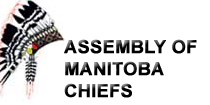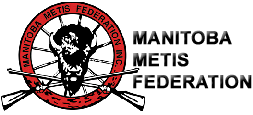ABORIGINAL JUSTICE INQUIRY—CHILD WELFARE INITIATIVE
IMPLEMENTATION COMMITTEE - PHASE 2 TERMS OF REFERENCE AND METHOD OF
OPERATION
January 1, 2001 to March 31, 2001
General:
The Joint Management Committee has adopted a schedule based on five separate
stages or phases. Each phase is dedicated to a step in the overall process
leading to the establishment of three separate and distinct province-wide
mandates. The schedule of phases includes:
- Phase 1: September, 2000 to December, 2000 -- Working Groups
struck to develop proposals and recommendations for the draft implementation
plan.
- Phase 2: January, 2001 to March, 2001 -- Implementation Committee
prepares consolidated draft implementation plan based on Working Groups
proposals and recommendations.
- Phase 3: April, 2001 to August, 2001 -- Detailed implementation
plan developed.
- Phase 4: August, 2001 to March, 2003 -- Plan substantially
implemented.
- Phase 5: April, 2003 to October, 2003 -- Stabilization of changes
implemented.
Implementation Committee Purpose:
The Implementation Committee is established under Section 2.1(b) of the
Child and Family Services Protocol. The Implementation Committee
is an instrument of the Joint Management Committee to assist in the development
of an implementation plan.
In Phase 1, the Implementation Committee was charged with the responsibility
for the overall management and coordination of the Working Groups, including
participating, where necessary, on the Working Groups; providing interpretation
of JMC direction; and ensuring Working Groups achieve their objectives
and meet established deadlines;
In Phase 2, the Implementation Committee will support Joint Management
Committee to develop a draft implementation plan. The Implementation Committee
will achieve this objective by synthesizing and building upon the reports
of the Working Groups.
In particular, the Implementation Committee is a working forum
that:
- Identifies and classifies aspects of the Working Group reports that
are 'foundational', short-term, medium-term, long-term or other;
- Identifies aspects of the Working Group reports that are feasible
in the longer term and should be considered for implementation once
the foundational aspects are completed and stabilized;
- Identifies and undertakes clarification and further development of
aspects of the Working Group reports, and
- Identifies aspects of Working Group reports which must be referred
to Joint Management Committee for resolution.
Foundational:
An aspect of a Working Group report is foundational if other decisions
or actions depend upon the implementation of the aspect. In other words,
the aspect is a pre-requisite to other decisions or actions. A foundational
aspect may be related to the common vision, and/or may be short-term,
medium-term or long-term.
Terms of Reference:
- These Terms of Reference require approval by the Joint Management
Committee.
- These Terms of Reference apply to Phase 2, the period from January
1st, 2001 to March 31st, 2001.
- During Phase 2, the membership of the Implementation Committee will
remain as in Phase 1, namely: 2 First Nation representatives; 2 Metis
representatives and 2 Government representatives.
- The Implementation Committee is co-chaired by a First Nations representative
and a Government representative.
- The representatives to the Implementation Committee will inform and
consult with their respective Steering Committees. As in Phase 1, the
Steering Committees provide direction and feedback to the representatives.
- The Implementation Committee will operate and achieve decisions on
a consensus basis. In the event that the Implementation Committee is
not able to reach a consensus, the matter will be referred to the Joint
Management Committee.
- The Implementation Committee shall be responsible for taking the steps
necessary to complete the draft implementation plan by initiating discussions
with appropriate experts, collaterals and others; and by referring specific
matters to the respective Steering Committees for consideration.
- The members of the Implementation Committee will be individually and
collectively responsible for preparing components of the draft implementation
plan. This may include, but is not limited to, research, analysis and
writing aspects of the plan.
- The Implementation Committee shall keep a record of salient points
and decisions. Each member will receive a copy of this record.
- The Implementation Committee shall deliver the draft implementation
plan to the Joint Management Committee on March 21st, 2001,
and will support Joint Management Committee to deliver the plan to the
Executive Committee on March 31st, 2001. These dates are
subject to review and modification by Joint Management Committee.
Deliverables:
- The Implementation Committee is responsible for reviewing, summarizing
and analyzing Working Group reports and collateral submissions based
on the "approach to analysis" (see below).
- The Implementation Committee shall deliver the following reports upon
the schedule specified:
- January 11th, 2001 -- Implementation Committee Terms
of Reference and Method of Operation;
- January 31st, 2001 -- initial analysis of Working Groups
and collateral submission findings and recommendations resulting in
common themes and common vision at a systemic/strategic level;
- February 28th, 2001 -- preliminary outline of the draft
implementation plan;
- March 21st, 2001 -- draft implementation plan.
- The Implementation Committee shall bring to the attention of the Joint
Management Committee matters which require discussion, problem-solving
and decision-making. This includes matters upon which Implementation
Committee could not achieve consensus.
- The Implementation Committee shall prepare briefing notes and interim
reports as requested by the Joint Management Committee.
- These dates are subject to review and modification by Joint Management
Committee.
Approach to Analysis:
The approach to analysis consists of four steps. It is based on
the notion that the report of the Service Delivery Working Group is the
primary document necessary for the development of the Implementation Plan.
Step One and Sub-Steps 2.1, 2.3, 3.1 and 3.2 are expected to be complete
by January 31st, 2001. Sub-Steps 2.3 and 3.3 are expected to
be complete by February 28th, 2001.
- Step One: Pre-Analysis of Service Delivery Working Group report:
- Analysis of recommendations for internal consistency.
- Analysis of recommendations for compatibility with the Strategic
Design Principles.
- Categorization of the recommendations into Foundational, Short-term,
Medium-Term, Long-Term and Other recommendations.
- Step Two: Analysis of the five other primary reports (Legal and
Legislative, Human Resources, Finance, Technology and Intersectoral/Interjurisidictional)
in relation to Service Delivery:
- Pre-Analysis of recommendations from the other four primary reports
for compatibility with the Strategic Design Principles.
- Categorization of recommendations from the other four primary reports
into Foundational, Short-term, Medium-Term, Long-Term and Other recommendations.
- Analysis of recommendations of the other four primary reports in
relation to the recommendations from the Service Delivery Working
Group in terms of compatibility and completeness. This analysis may
require:
- Conducting consultations with appropriate individuals for clarification
of recommendations;
- Identification of apparent incompatibilities and inconsistencies;
- Identification of aspects requiring additional development, and
undertaking steps necessary to develop material to address those
aspects, and
- If required, the Implementation Committee will identify issues,
describe options available and note compatibility/incompatibility
with the Strategic Design Principles. The Implementation Committee
may make a specific recommendation.
- Step Three: Analysis of the remaining report (Research) in relation
to the other reports.
- Pre-Analysis of recommendations from the remaining report for compatibility
with the Strategic Design Principles.
- Categorization of recommendations from the remaining report into
Foundational, Short-term, Medium-Term, Long-Term and Other recommendations.
- Analysis of recommendations from remaining report in relation to
the recommendations of the other reports in terms of compatibility
and completeness. This analysis will result in:
- Conducting consultations with appropriate individuals including
former members of Working Groups for clarification of recommendations;
- Identification of apparent incompatibilities and inconsistencies;
- Identification of aspects requiring additional development, and
undertaking steps necessary to develop material to address those
aspects, and
- If required, the Implementation Committee will identify issues,
describe options available and note compatibility/incompatibility
with the Strategic Design Principles. The Implementation Committee
may make a specific recommendation.
- Step Four: Compilation of the material analyzed and/or prepared
in Steps One Through Three, and preparation and delivery of the draft
implementation plan to Joint Management Committee by March 21, 2001.
This document may include a proposed Phase 3 course of action based
on compatibility with Strategic Design Principles and feasibility of
Working Group recommendations.
Other
- The Implementation Committee is responsible for ensuring that the
Joint Management Committee, Working Group core members and others deemed
appropriate receive Working Group reports and collateral submissions.
- The Implementation Committee shall undertake to organize an event
to recognize the efforts of the Working Groups, and signal the completion
of Phase 1.
- The Implementation Committee shall work closely with the Communications
Sub-Committee to ensure that all interested parties continue to be informed
as to the process.
- Administrative support and pre-approval of expenditures in relation
to preparation of the above deliverables shall be provided by the Province
of Manitoba.









